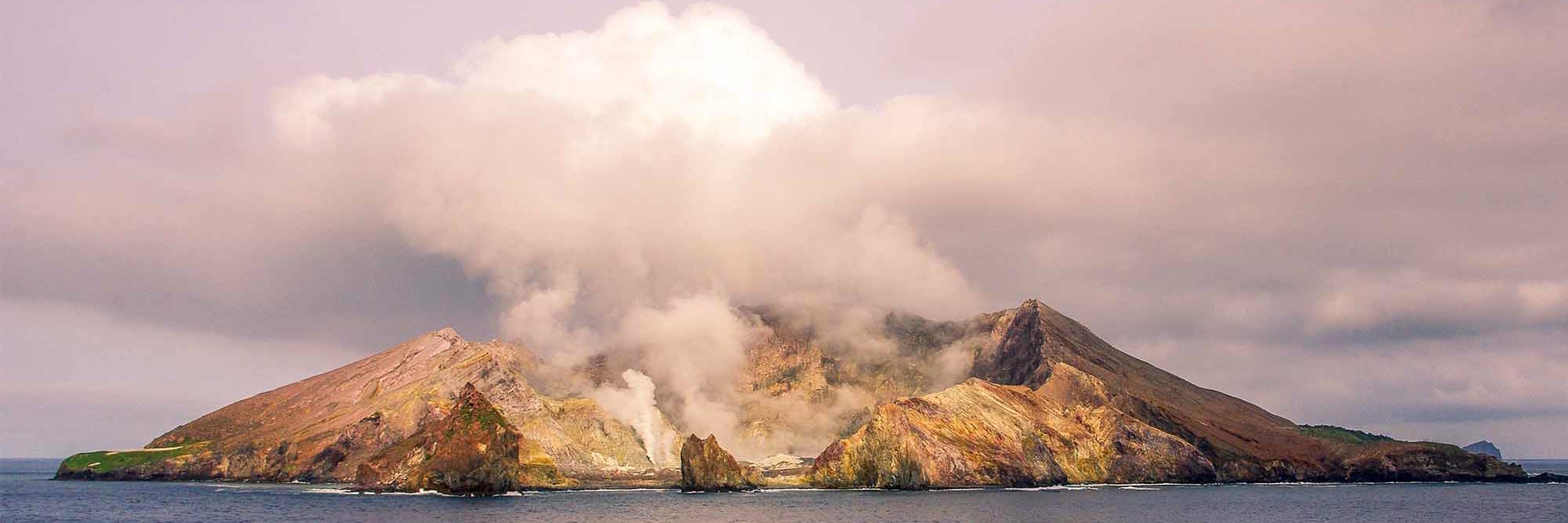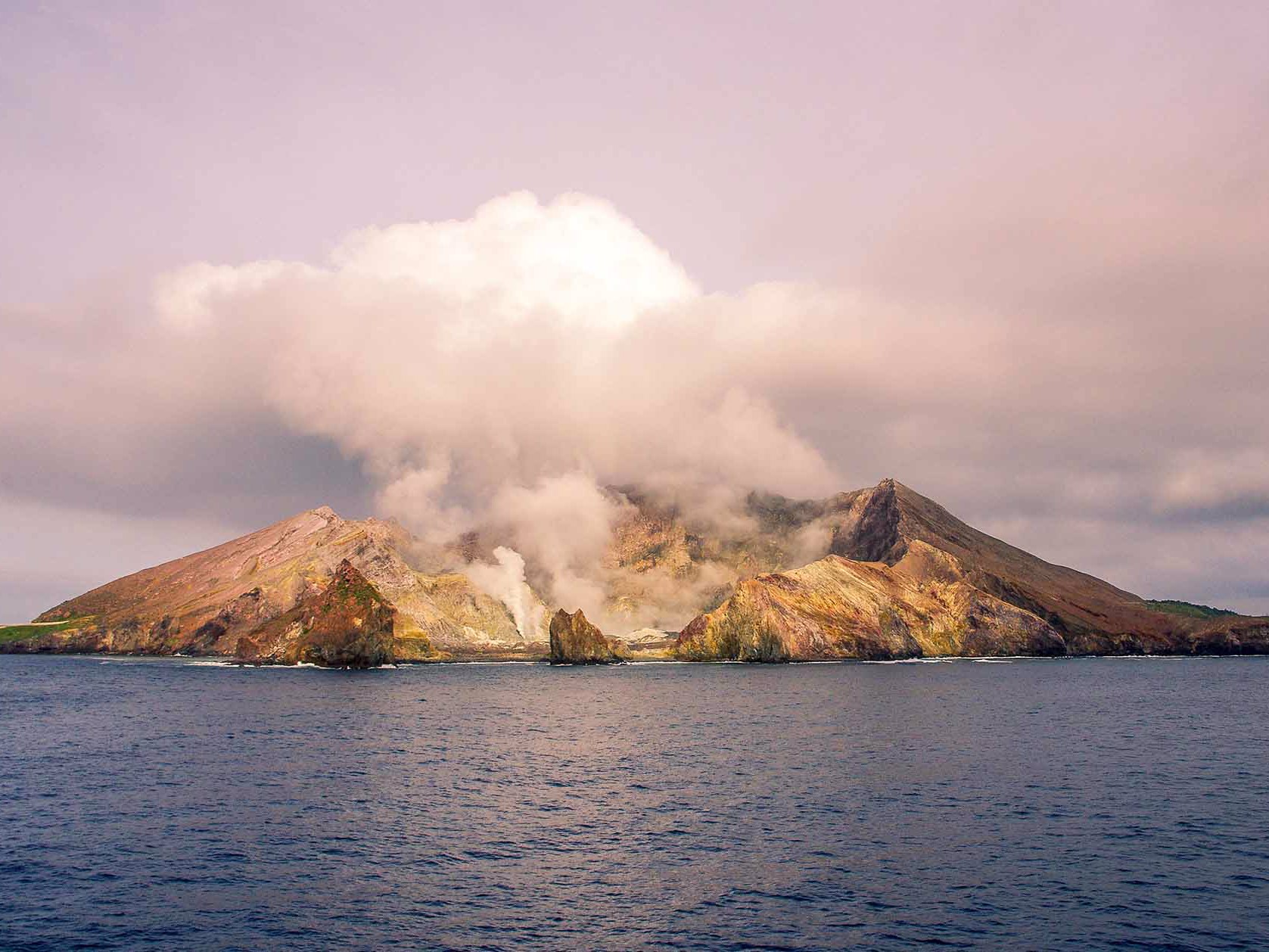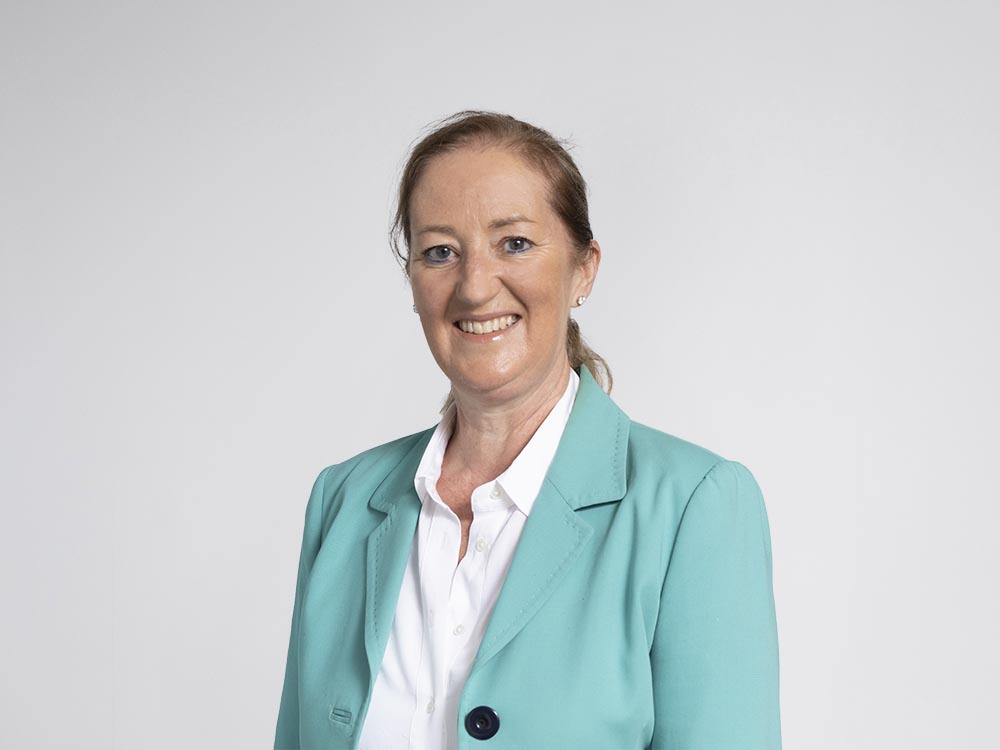On 31 October 2023, Judge Thomas convicted Whakaari Management Limited (WML) in relation to a charge filed by WorkSafe New Zealand (WorkSafe) under s 37 of the Health and Safety at Work Act 2015 (HSW Act) (the WML Decision) [1]. A charge filed against WML under s 36 was dismissed. WML will be sentenced in February/March 2024.
The WML Decision marked the culmination of the liability stage of one of the most significant health and safety proceedings in New Zealand’s history. There will be a sentencing hearing for WML, as well as for the other defendants who pleaded guilty earlier in 2023, commencing on 26 February 2024.
When WorkSafe began its investigation of those involved in tourism to, or connected with, Whakaari White Island, 13 defendants faced charges. The defendants included PCBUs operating tours themselves on Whakaari White Island and their officers, PCBUs operating along the supply chain (such as booking agencies), and even PCBUs with wider public responsibilities to warn of volcanic risks (ie GNS Science).
Since the proceedings began, six defendants have pleaded guilty and a further six have had their charges dismissed (either prior to or during the trial). This left WML as the remaining defendant at trial.
The overall outcome – and particularly the number of charges dismissed – will be disappointing for those affected by what happened. In many respects, the outcome appeared to reflect a lack of rigour from WorkSafe as to the way it investigates and formulates charges against defendants that is not often tested in practice because of the commercial and other incentives that defendants have to plead guilty at an early stage. One hopefully positive outcome that will come from these proceedings will be a deeper consideration of the appropriateness of charges from the outset by WorkSafe and a willingness to defend or seek dismissal of those charges, where appropriate, by PCBUs.
In this update we reflect upon the key lessons from the proceedings as a whole noting some of the consequences for PCBUs and officers. We discuss three key decisions:
- the WML Decision [1];
- WorkSafe New Zealand v I D Tours New Zealand Limited and Tauranga Tourism Services Limited [2]; and
- WorkSafe New Zealand v Andrew Buttle and James Buttle and Peter Buttle [3].
Active management or control of a workplace is required for the HSW Act, s 37
In the WML Decision, Judge Thomas considered the application of s 37 of the HSW Act. Whakaari White Island was owned by Whakaari Trustees Limited, which leased the island to WML (which was responsible for managing the island). WML entered into licence agreements with tour operators to permit them to operate tours on the island. WML did not operate any tours or engage in any activity on Whakaari White Island itself.
Despite WML’s operational distance, Judge Thomas found that Whakaari White Island was a workplace which WML nevertheless managed or controlled. His Honour noted that “[t]o be caught s 37, a PCBU must in fact be exercising active control or management of the workplace in a practical sense. Owning it is not enough. Making money from it is not enough. Merely being able to manage or control a workplace, but not doing so, is not enough.” Whether or not a PCBU manages or controls a workplace was accepted to be a factual assessment that depended upon the circumstances.
Judge Thomas found that WML actively managed or controlled the workplace for a number of reasons, including:
- its licence agreements indicated that WML was proactive in setting conditions around access to Whakaari White Island;
- it maintained proactively involved with tour operators and other stakeholders once licence agreements were entered into; and
- it could terminate, or threaten to terminate, the licence agreements for any breach, therefore being able to control access to the workplace.
After finding that WML owed a duty under s 37, His Honour then considered whether WML breached that duty – which it did. The key reason was that it had not undertaken a risk assessment before allowing tours to commence on the island – a reasonably practicable step that could have been taken. Such an assessment would have informed WML of the risks of permitting tour activities as well as other steps that could be taken to manage health and safety risk. Judge Thomas considered the need to carry out a risk assessment to reflect not only the expert evidence in the proceedings but also, importantly, common sense.
Importantly, Judge Thomas noted that a risk assessment was not just required at the outset but that once a risk assessment had been completed, it would need to be revisited and reviewed periodically (acknowledging the variable conditions on Whakaari White Island).
WML argued that it had engaged with GNS (a Crown Research Institute which, among other things, monitors volcanic activity in New Zealand) and received information from GNS about Whakaari White Island. In doing so, WML argued that it was not reasonably practicable for it to conduct a further risk assessment. Although WML had engaged with GNS in this respect, Judge Thomas rejected WML’s argument for the following reasons:
- if a PCBU has a duty under the HSW Act, that duty remains with the PCBU and cannot be transferred. That said, what is required can be affected by those same steps being carried out by others (eg if safety equipment had been provided by one PCBU another PCBU need not do the same);
- the information GNS provided to WML did not relieve WML of its obligation to conduct a risk assessment as GNS assessed the risk to its own workers. GNS did not assess the risk for tour operators, or the societal risk of multiple tours being conducted on Whakaari White Island;
- WML could not rely upon information from GNS without understanding the qualitative information its risk assessments were based on;
- the interaction between WML and GNS was insufficient to amount to WML taking expert advice; and
- the information WML received from GNS did not amount to a risk assessment.
This part of the judgment highlights some key lessons for PCBUs:
- where there is an overlapping duty, you cannot rely on other PCBUs to discharge that duty on your behalf;
- where there are PCBUs with overlapping duties, there will also be differences that each PCBU needs to account for despite that the risks they are managing will be related in some respects;
- when thinking about what reasonably practicable steps could be applied to a situation, common sense steps should not be discounted;
- PCBUs with overlapping duties should establish clear information sharing frameworks from the outset, and should have a level of formality, particularly in high-risk industries/activities; and
- it is not enough to obtain information from other PCBUs; information must be assessed and verified to ensure it discharges the PCBU’s duties. It should also be regularly reviewed and updated.
The primary duty of care is confined to occupational health and safety
Tauranga Tourism Services Limited (Tauranga Tourism) and ID Tours New Zealand Limited (ID Tours) had their charges dismissed on 12 September [2]. The reasoning is similar to that in the WML Decision regarding the dismissal of the charge under s 36.
Tauranga Tourism and ID Tours formed part of the supply chain between White Island Tours Limited and Royal Caribbean passengers who purchased tours to Whakaari White Island. Both defendants co-ordinated booking logistics, both passed booking-information along the supply chain, and both were ultimately charged under s 36(2) of the HSWA with failing to properly consult, co-ordinate and co-operate with others to ensure that necessary safety information reached Royal Caribbean passengers.
Judge Thomas dismissed these charges after determining that neither defendant owed a duty to tourists on Whakaari White Island under s 36(2). Section 36(2) imposes a duty on persons conducting a business or undertaking (PCBUs) to ensure, so far as is reasonably practicable, that the health and safety of other persons is not put at risk from work carried out as part of the conduct of the business or undertaking.
WorkSafe’s case failed because Judge Thomas found that duties under s 36(2) are only engaged where the relevant risks and hazards arise directly from “work activity” of a type contemplated by s 36(1). This means that s 36(2) only applies to risks and hazards arising directly from work activity carried out at a PCBU’s workplace, whether the work is carried out by the PCBU’s workers or by other workers whose activities the PCBU influences or directs. Where the risk arises from the “work product” (ie the result of the work), s 36(2) is not engaged.
Therefore, only risks arising from the process Tauranga Tourism and ID Tours carried out to facilitate tours to Whakaari White Island would have engaged s 36(2). By contrast, risks arising from the result of that work (ie tourists being present on Whakaari White Island during an eruption) did not engage the provision. In other words, Tauranga Tourism and ID Tours owed no duties in connection with the Whakaari White Island eruption because they did not:
- have workers on the island;
- conduct work on the island; or
- influence or direct work that was conducted on the island.
Judge Thomas observed that this interpretation of the relationship between the duties under s 36(1) and s 36(2) is consistent with the underlying scheme and purpose of the HSW Act, which is designed to address occupational health and safety (and not product safety).
Nonetheless, Judge Thomas acknowledged that, if the operation had involved a single entity dealing directly with consumers and providing the tour instead of the tour being provided through a chain of different entities, then that entity would have owed duties to provide safety information to customers at point of sale.
Individual officers are not presumptively responsible for Board-level failures
WML’s directors (Andrew, James, and Peter Buttle) were charged as officers under s 44 of the HSW Act with failing to exercise the necessary due diligence to ensure WML complied with its obligations, particularly in relation to obtaining expert advice regarding risk.
Judge Thomas dismissed those charges on 5 September after determining that it could not reasonably convict any of the Buttles on the evidence that WorkSafe had presented, even when taking that evidence “at its highest” [3].
The central problem for WorkSafe was that its evidence about WML’s alleged failures only reflected the action or inaction of the Buttles as a group. However, the Buttles were (necessarily) charged as individuals, meaning that the charges against each of them had to be proved individually.
To prove a charge against an individual officer, WorkSafe had to prove that the relevant officer personally failed to exercise the care, diligence, and skill that a reasonable officer would have exercised in the same circumstances. Judge Thomas could not assume that the Buttles were all in the same circumstances without evidence about the nature of the responsibilities that each of them had taken on. Equally, His Honour could not assume that the Buttles all exercised the same level of care, diligence, and skill without evidence about whether they had, for example, agreed on relevant decisions.
Rather, Judge Thomas said it would have to evaluate each Buttle’s individual due diligence by asking questions such as:
- Did they as a board agree that all three of them should have the responsibility for looking into whether and what expert advice WML should take?
- Did they agree that one in particular was more able to perform that role than the others, or two of them?
- Did they argue or disagree about how much should be done?
- Was anyone outvoted on that?
- Did that person do all that they could but was simply outnumbered?
Judge Thomas decided that it could not answer these questions because it had no evidence of what happened behind the boardroom door. Moreover, His Honour was critical of WorkSafe, noting that the regulator could have acquired the information it needed simply by asking, and that its very late decision to prosecute the Buttles as directors left it without enough time to investigate before its charging deadline.
Officers can take the following lessons from the decision:
- Officers’ due diligence obligations are assessed on an individual basis. The Court will take into account each individual officers’ role and decisions. WorkSafe cannot rely on the fact that a PCBU is a closely held company to bypass the need to find specific evidence pertaining to each officer.
- That said, evidence about an officer’s role might come from their job title or their company’s constitution. For example, if a constitution requires the actions and decisions of all directors to be unanimous and informed, the Court might be more willing to infer that any failures of the group as a whole can be attributed back to each of the directors.
- Officers looking to protect themselves should consider what might be required of a reasonable officer in their role and act accordingly. Moreover, officers should consider how they can prove that they’ve exercised due diligence. This might involve raising appropriate questions at board meetings, critically considering health and safety reports, and recording dissents where necessary.
- Although WorkSafe needs to gather evidence of individual officers’ roles, the importance of this goes both ways. In addition to good governance, good record keeping is important. If something goes wrong, officers who have been diligent will want to be in a position to show WorkSafe and, where necessary, the Court that they have proactively complied with their individual duties.
Admissibility of WorkSafe interviews
Finally, the WML Decision contains an interesting discussion of the admissibility of a WorkSafe interview with WML.
After email exchanges between WML and WorkSafe about possible voluntary interviews, WorkSafe (citing its powers under s 168(1)(f) of the HSW Act) required WML to attend WorkSafe’s Whakatāne offices to be interviewed.
WML submitted that WorkSafe did not have the power under s 168(1)(f) to compel WML to attend an interview at a particular time and place and that the evidence was therefore inadmissible. Judge Thomas agreed the evidence was improperly obtained by WorkSafe. However, he concluded that excluding the evidence was not proportionate to any impropriety – therefore finding the evidence was admissible.
Judge Thomas’ reasons for finding the evidence was improperly obtained provide some useful guidance for PCBUs who are subject to an investigation by WorkSafe in terms of the breadth of WorkSafe’s powers. Whereas the predecessor provision to s 168(1)(f) had been held to be an ‘attend for questioning’ power, s 168(1)(f) had not been considered judicially. Judge Thomas paid close attention to the text and context of the provision noting:
- the text of s 168(1)(f) does not expressly permit WorkSafe to compel a person to attend at a certain place or time;
- a PCBU must give reasonable assistance to WorkSafe under s 176(1) of the HSW Act. That obligation would include reasonably engaging with WorkSafe to set a time and place for an interview; and
- given s 168(1)(f) does not expressly permit WorkSafe a power to compel and a PCBU is obliged to give reasonable assistance including in setting a time and place for an interview, there was no need to read into s 168(1)(f) a power to compel.
Judge Thomas’ approach to this power in the WML Decision is likely to result in more proactive and constructive engagement between PCBUs and WorkSafe during the course of any investigation when arranging an interview. This may also extend to written demands for information by WorkSafe using the same statutory provision. A date is routinely given for when such information must be provided by the PCBU receiving the demand. Although the duty to provide reasonable assistance remains on Judge Thomas’ interpretation of the provision, a response by a particular date is not something that WorkSafe can compel.
Footnotes
[1] WorkSafe New Zealand v Whakaari Management Limited [2023] NZDC 23224
[2] WorkSafe New Zealand v I D Tours New Zealand Limited and Tauranga Tourism Services Limited [2023] NZDC 19521
[3] WorkSafe New Zealand v Andrew Buttle and James Buttle and Peter Buttle [2023] NZDC 18939








